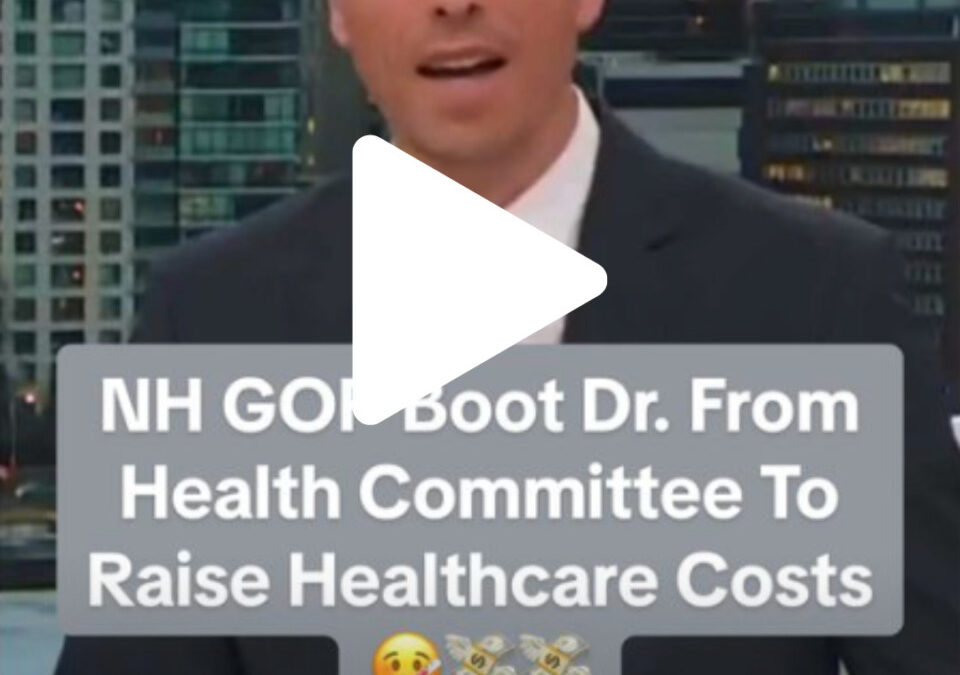
The White House estimates that these new prices will lead to around $6 billion in savings for the Medicare program in 2026. The new prices will be anywhere from 38% to 79% lower than the drugs’ list prices last year, saving seniors on Medicare an estimated $1.5 billion in out-of-pocket costs in 2026 alone. (Photo by: Jeffrey Greenberg/Education Images/Universal Images Group via Getty Images)
The White House estimates that these new prices will lead to around $6 billion in savings for the Medicare program in 2026. The new prices will be anywhere from 38% to 79% lower than the drugs’ list prices last year, saving seniors on Medicare an estimated $1.5 billion in out-of-pocket costs in 2026 alone.
The Biden-Harris administration on Thursday announced the new, lower prices of 10 expensive and widely-used drugs that were selected last year for negotiations between Medicare and drugmakers under the Inflation Reduction Act.
The negotiations — which used the power of Medicare to lower drug costs for seniors — are expected to save taxpayers about $6 billion in 2026, when they go into effect. The new prices will be anywhere from 38% to 79% lower than the drugs’ list prices last year, saving seniors on Medicare an estimated $1.5 billion in out-of-pocket costs in 2026 alone.
The drugs include the blood thinners Eliquis and Xarelto, as well as the diabetes drugs Jardiance, Januvia, and Farxiga.
The other drugs are the heart failure treatment Entresto, the rheumatoid arthritis drug Enbrel, the blood cancer treatment Imbruvica, the anti-inflammatory medicine Stelara, and Novo Nordisk’s suite of insulins, which go by the names Fiasp and NovoLog.

The White House estimates that these new prices will lead to around $6 billion in savings for the Medicare program in 2026. The new prices will be anywhere from 38% to 79% lower than the drugs’ list prices last year, saving seniors on Medicare an estimated $1.5 billion in out-of-pocket costs in 2026 alone. (Centers for Medicare & Medicaid Services)
For Fiasp and NovoLog, the negotiated prices are 79% and 76% cheaper respectively than their 2023 list prices; these drugs are used by 843,000 and 785,000 Medicare Part D enrollees respectively, the largest numbers for this first set of negotiations.
“For so many people, being able to afford these drugs will mean the difference between debilitating illness and living full lives,” Chiquita Brooks-LaSure, the administrator for the Centers for Medicare and Medicaid Services, told reporters. “These negotiated prices. They’re not just about costs. They are about helping to make sure that your father, your grandfather or you can live longer, healthier.”
The announcement from the Biden-Harris administration comes just one day before the second anniversary of the signing of President Biden’s Inflation Reduction Act (IRA), which authorized Medicare to negotiate prices for these expensive drugs with pharmaceutical companies for the first time.
In a statement, President Biden called these new, negotiated prices a “historic milestone” made possible because of the IRA, which Democratic nominee for president Kamala Harris cast the tie-breaking vote for in the Senate in 2022.
Harris said in a statement that she was proud to cast that deciding vote.
“Today’s announcement will be life-changing for so many of our loved ones across the nation, and we are not stopping here,” Harris said, noting that additional prescription drugs will be selected for future negotiations going forward.
Another 15 drugs will be selected for negotiation and see their prices decrease in 2027, with 15 more following in 2028, and 20 more in 2029 and each year afterwards.
Merith Basey, executive director of Patients For Affordable Drugs, said that “Medicare has ushered in a new era of affordability for patients across the country by successfully negotiating lower prices on 10 of the most expensive and widely-used drugs.”
“It marks a critical shift in the system to make it work for the people it is supposed to serve – patients – rather than those who profit from it,” she said. “The lower negotiated prices symbolize new hope for patients on these drugs who have been forced to make impossible choices between their health, well-being, and financial stability.
“For too long, we’ve lived in a broken system that has allowed drug companies to charge whatever they want while hard-working Americans struggle to afford the medications they need to survive,” Protect Our Care Chair Leslie Dach added in a statement.
Despite the administration’s successes, the negotiations have been met with pushback from the pharmaceutical industry.
In a series of lawsuits, companies like Merck have blasted the initiative, calling it unconstitutional and defending their high prices. They claim that the regulation could undermine future cures. Lawyers for Bristol Myers Squibb, Janssen, Novartis, and Novo Nordisk also offered several objections to the negotiations earlier this year, saying that they constitute “the illegal taking of their drugs.” Other companies have claimed even signing a contract would be unconstitutional, because it would force them to admit publicly that a lower price is a fairer price.
The Medicare drug price negotiation program survived its first court challenge by a drugmaker in March, after a federal judge ruled against AstraZeneca in a lawsuit the company filed challenging the program. Most recently, another federal judge tossed out a US Chamber of Commerce lawsuit challenging the law, as well.
Other legal proceedings remain ongoing.

NH Health providers deeply alarmed over Ayotte and Trump’s potential Medicaid cuts
Top community health service providers, advocates and impacted individuals joined Congresswoman Maggie Goodlander at Gateways Community Services in...

NH GOP Boot Doctor From Health Committee
New Hampshire Republicans booted the only Republican doctor in the state legislature from a key health committee ahead of a vote to eliminate a...

Proposed changes to Medicaid could cost NH $500 M annually
Changes proposed to Medicaid under President Donald Trump’s new administration could cost the Granite State almost $500 million annually, a new...

New analysis shows GOP plans threaten Medicaid coverage for 61,713 Granite Staters
A new proposal backed by former President Donald Trump and his allies in Congress could threaten health care coverage for over 60,000 New Hampshire...

Dartmouth Health ditches policy requiring COVID vaccination for kidney transplants
Dartmouth Health will no longer require patients undergoing kidney transplants to be vaccinated against COVID-19, according to the attorney...

NH Attorney General approves sale of Catholic Medical Center to for-profit company
Owing to the Catholic Medical Center’s financial condition, New Hampshire’s Attorney General has approved the terms of sale of the Manchester-based...




